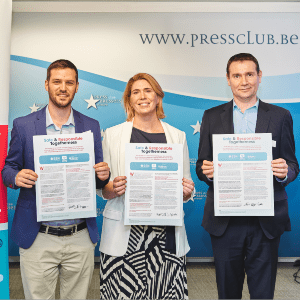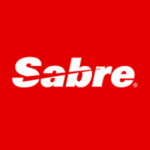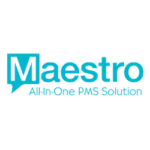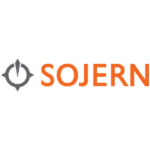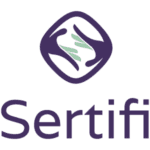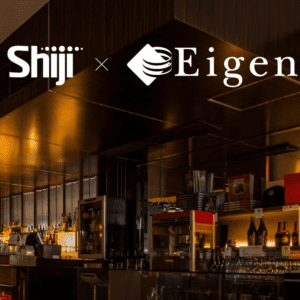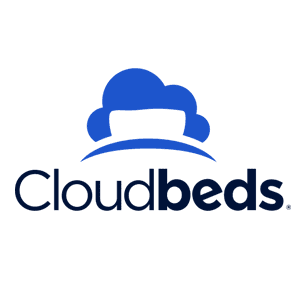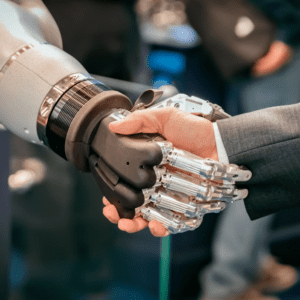
The hospitality industry is constantly changing, with hotels embracing technology and automation to enhance their operations and improve overall guest satisfaction. As the demands of modern travellers continue to increase, hoteliers recognise the growing need to streamline processes and maximise efficiency.
Automation has become a game-changer, allowing hotel staff to focus on delivering exceptional experiences while saving valuable time instead of being trapped with time-intensive and repetitive tasks.
Whether in marketing, operations, reservations, or other areas, you and your team can leverage technology and automation in more ways than you think.
Why is automation so important for hospitality?
In today’s fast-paced world, guests expect a smooth and efficient stay at their chosen accommodations and brands must be up-to-speed in these manners.
However, it can be challenging without technology to stay on top of the latest industry trends and meet guests’ rapidly changing expectations. This is where automation comes into play.
The truth is that manual processes not only consume time but also open doors for human error, whilst automation can help not only get better and faster results but also reduce errors.
Automation addresses these challenges by automating repetitive tasks, reducing manual work, and preventing the likelihood of mistakes. By adopting automated systems and technologies, hotels can adapt to the evolving industry landscape and meet the needs of tech-savvy travellers.
If you are still unsure how automation can benefit you, here are seven tips to help you automate your tasks and save time on your property.
Streamlining Front Desk Operations
1. Implement a chatbot on your website
Implementing a chatbot on your hotel’s website or mobile app can significantly streamline front desk operations by handling the most simple and repetitive questions. Your team can finally focus on more complex guest questions, deliver personalised service, and even pay extra attention to complaints or special guests.
These intelligent virtual assistants can respond instantly to common questions, such as room availability, early check-in, amenities, or even nearby attractions.
It saves time for guests and staff and ensures consistent and immediate responses, enhancing the overall guest experience.
Since chatbots are available 24/7, guests are able to receive assistance at any time, improving customer service and reducing the workload on the front desk.
And to cater to the needs of a growing number of international travellers, chatbots can be programmed to communicate in different languages, so guests from all over the world can feel welcomed and understood.
2. Implement an online check-in method
Online check-in is another powerful tool for streamlining front desk operations. By allowing guests to check-in prior to their arrival, hotels can reduce waiting time, eliminate paperwork, and improve the speed and efficiency of the check-in process. Travellers can avoid long queues and unnecessary paperwork, enjoying a seamless arrival experience.
In addition, guests are able to complete necessary information, select room preferences, and even make special requests, all from the comfort of their own devices. Online check-in systems can also collect guest data, enabling hotels to deliver tailored experiences.
3. Optimise how you handle incoming messages
Hotels have many channels of communication, from social media to the hotel website to OTAs. Believe it or not, so much time is wasted by logging and switching between the different platforms. And what is worse, there are also many messages that are left unresponsed or that receive a very late answer. To avoid it, you can use technology and gather all your messaging platforms into a general Unified Inbox. You can even create quick replies to reduce the time your team spends answering incoming messages. Hotels doing this are spending less than 1 minute per message, which translates into hours of saved time for the team.
Optimising Hotel Marketing Strategies
4. Make use of automated Campaigns
Automation opens up a world of possibilities when it comes to your hotel marketing. By utilizing automated campaigns, hotels can reach their target audience at the right time, with relevant and personalised messages.
For example, you can schedule all your guest journey messages, no matter what stage of the journey they belong to. From pre-stay messages to post-stay invoices. This allows you to save a lot of time because you go from sending each message manually to creating workflows and journeys.
Once set up, automated campaigns can run without continuous manual intervention, no matter the day or the time.
And by any means automating messages involves lack of personalisation, because if you are using a hotel CRM, you can use different personalisation tokens to adjust your message according to the preferences of your guests, demographics, or previous interactions.
By automating marketing efforts, hotels can effectively track campaign performance, analyse data, and iterate on strategies to optimise return on investment.
5. Gather guest feedback using automation
Gathering feedback from guests is important for measuring satisfaction levels and identifying areas for improvement. Automation can simplify this process by sending automated surveys to guests post-stay.
These surveys can include questions about their experience, service quality, and suggestions for enhancement. By automating feedback collection, hotels can process a large number of responses effortlessly without placing an additional burden on staff members.
Moreover, automation tools can generate immediate feedback reports, enabling hoteliers to address any concerns promptly and enhance their service in real-time.
Here are must-have technologies to improve your hotel marketing game
Managing Inventory and Procurement Seamlessly
6. Keep an automated track of inventory
Keeping track of inventory can be a time-consuming task that often requires meticulous record-keeping and manual checks. Automating inventory management systems can provide accurate real-time information about stock levels, allowing hotels to monitor and control their supplies efficiently. It reduces manual intervention and streamlines inventory tracking processes, freeing up staff members for other essential tasks.
As a result, hotels can avoid overstocking or stockouts, preventing unnecessary expenditure and ensuring smooth operations. Digital systems can also generate alerts when inventory levels are low, making sure hotels can replenish on time.
7. Automated reordering
Reordering supplies and managing procurement can be a complex task for hoteliers. Implementing automation systems that monitor existing stock levels and generate purchase orders can simplify this process significantly, ensuring all supplies are always replenished on time. This can enhance efficiency and reduce the burden on staff members responsible for procurement tasks.
Additionally, automated reordering allows hotels to better negotiate prices with suppliers, ensuring competitive rates and optimising procurement expenses.
How to find the right balance between automation and the human touch?
While automation offers numerous benefits for hotels, it is crucial to find the right balance between automation and the human touch. Many hotels frequently struggle with the dilemma of whether to go fully digital or to continue providing the conventional services including front desk service. What if we told you there’s a way to combine both worlds?
Guests can have a wide range of preferences. While some guests appreciate the convenience of being able to handle everything on their phone or computer, others long for the personalised interactions and human connection at the front desk.
Therefore, finding the right balance requires providing a hybrid approach, where technology speeds up routine tasks while still having friendly and helpful staff on hand to offer personalised services.
By combining automation and the human touch, hotels are able to cater to both types of customers and ensure a harmonious guest experience that blends convenience and warm hospitality.
Conclusion
Automation is revolutionising the hospitality industry, allowing hotels to save time and resources while delivering exceptional guest experiences. By streamlining front desk operations, optimising marketing strategies, and managing inventory seamlessly, hotels can improve efficiency, maximise guest satisfaction, and stay ahead in a competitive market.












